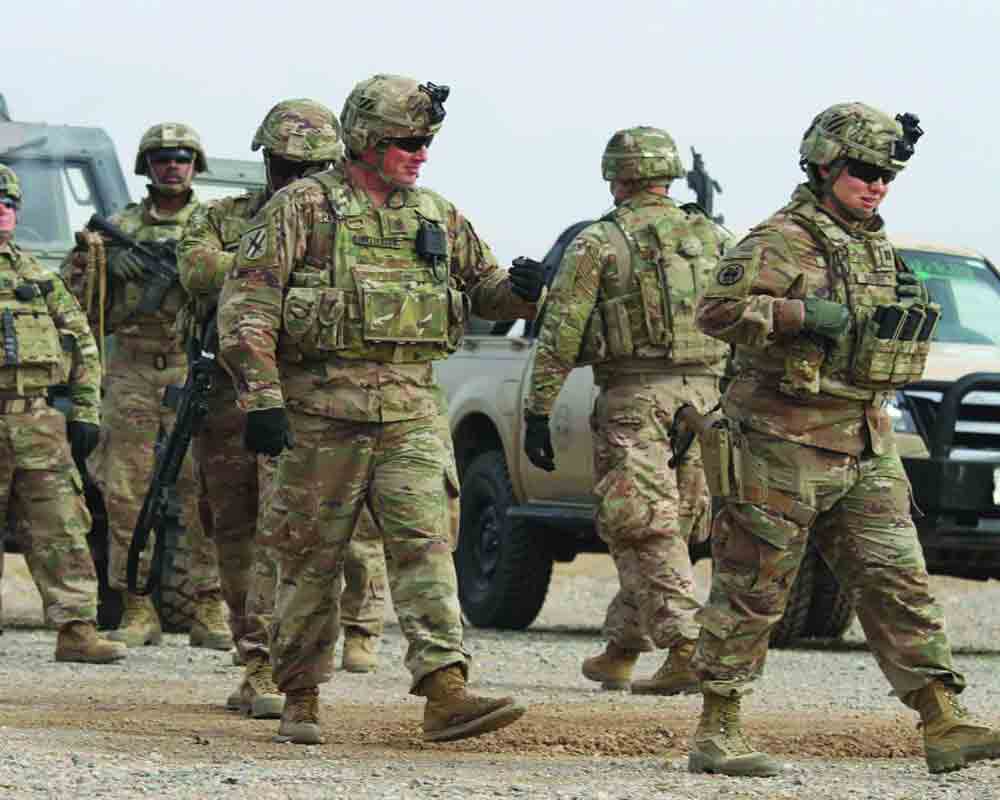The Afghan Army feels that it has been let down by the United States and Nato forces in their handling of the Taliban takeover
The rapid collapse of the Afghan National Army (ANA) against the Taliban has been attributed to the lack of its capability and will to fight. Trained and built by the United States’ Army for about 20 years at a cost of an estimated $83 billion, it should, prima facie, not have lacked either. The argument that corruption, inefficiency and desertions had considerably affected its fighting capability is true to some extent but has certainly not been the defining cause. The American and Nato forces had played little combat role against the Taliban after President Barack Obama announced on May 27, 2014, that the combat role of the US troops would end by the close of that year and the bulk of them would be withdrawn from Afghanistan by the end of 2016. The bulk of the fighting had since then been done by ANA personnel, albeit with air and tactical support by the US and allied forces. And they had done remarkably well on a number of occasions.
The erosion of will began with the Doha Agreement of February 29, 2020, between the US and the Taliban. The US, for its part, agreed on an initial reduction of its force level from 13,000 to 8,600 by July 2020, followed by a full withdrawal in 14 months if the Taliban kept its commitments. It had also agreed to close down five military bases within 135 days and said that it intended to end its economic sanctions against the Taliban by August 27, 2020.
It called for talks between the Afghan Government and the Taliban to begin on March 10, 2020, and, prior to that, the release of 5,000 Taliban prisoners held by the Government and 1,000 from the Government’s side held by the Taliban. The two sides, it said, will have the goal of “releasing all the remaining prisoners over the course of the subsequent three months”. Also, the US will start diplomatic engagement with other members of the United Nations Security Council and Afghanistan to remove members of the Taliban “from the sanctions list with the aim of achieving this objective by May 29, 2020….” Further, “The United States and its allies will refrain from the threat or the use of force against the territorial integrity or political independence of Afghanistan or intervening in its domestic affairs.”
The condition on Afghanistan was that it “will not allow any of its members, other individuals or groups, including al-Qaeda, to use the soil of Afghanistan to threaten the security of the US and its allies.” The agreement also stated that “the Taliban commits that its released prisoners….will not pose a threat to the security of the US and its allies”. The agreement further laid down: “The participants of intra-Afghan negotiations will discuss the date and modalities of a permanent and comprehensive ceasefire, including joint implementation mechanisms, which will be announced along with the completion and agreement over the future political roadmap of Afghanistan.”
The Afghan Government, the fate of which was to be fundamentally affected by the accord, was neither a signatory to it nor a participant in the talks leading to it. There was no provision about the Taliban honouring the human rights of Afghans, particularly those of women and girls, or of agreeing to having a democratic system of Government in Afghanistan. Understandably, many in Afghanistan, including members of its armed forces, believed that the US has sold them down the river.
A report by Susannah George in Washington Post, of August 15, 2021, reads: “The Doha Agreement….left many Afghan forces demoralised, bringing into stark relief the corrupt impulses of many Afghan officials and their tenuous loyalty to the country’s central Government.” Some police officers complained that they had not been paid in six months or more. “They saw that document as the end,” the officer said, referring to the majority of Afghans aligned with the Government. “The day the deal was signed we saw the change. Everyone was just looking out for himself. It was like (the US) left us to fail.”
Despair grew with time. A report in the New York Times by Thomas Gibbons-Neff, Fahim Abed and Sharrif Hassan of August 13, 2021, states: “And when the Taliban started building momentum after the United States’ announcement of withdrawal, it only increased the belief that fighting in the security forces — fighting for President Ashraf Ghani’s Government — wasn’t worth dying for. In interview after interview, soldiers and police officers described moments of despair and feelings of abandonment.”
George, citing an Afghan officer and a US official said that from early last year, the Taliban were “offering money in exchange for the Government forces to hand over their weapons”. Beginning with a series of deals brokered in villages between the militant group and some of the Afghan Government’s lowest-ranking officials, the process spread “rapidly on to provincial capitals, culminating in a breathtaking series of negotiated surrenders by government forces, according to interviews with more than a dozen Afghan officers, police, special operations troops and other soldiers”.
The stage was set for the collapse that followed.
(The author is Consulting Editor, The Pioneer. The views expressed are personal.)


























